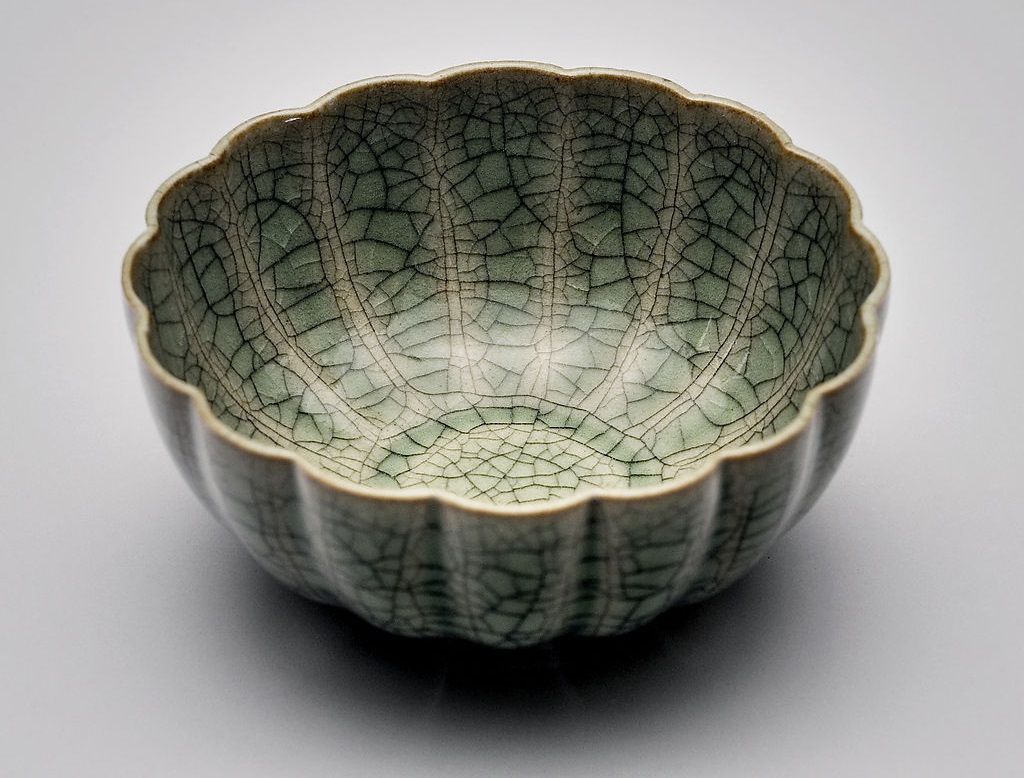
Ge ware or Ko ware (Chinese: 哥窯; pinyin: Gē yáo; Wade–Giles: Ko-yao) is a type of celadon or greenware in Chinese pottery. It was one of the Five Great Kilns of the Song dynasty recognised by later Chinese writers,[1] but has remained rather mysterious to modern scholars, with much debate as to which surviving pieces, if any, actually are Ge ware,[2] whether they actually come from the Song, and where they were made.[3] In recognition of this, many sources call all actual pieces Ge-type ware.[4]
It is clear that their distinguishing feature is deliberate crackle, or a network of cracks in the glaze; but this is not restricted to them, and in particular the related Guan ware uses very similar effects. Ge ware often shows "double crackle" or crackle of two types, and one view is that this is the defining characteristic of the type.[5] A three-day conference at the Shanghai Museum in 1992 attempted to reach a clear definition of Ge ware, but could not reconcile all views.[6]




 Art
Art


